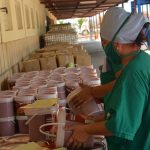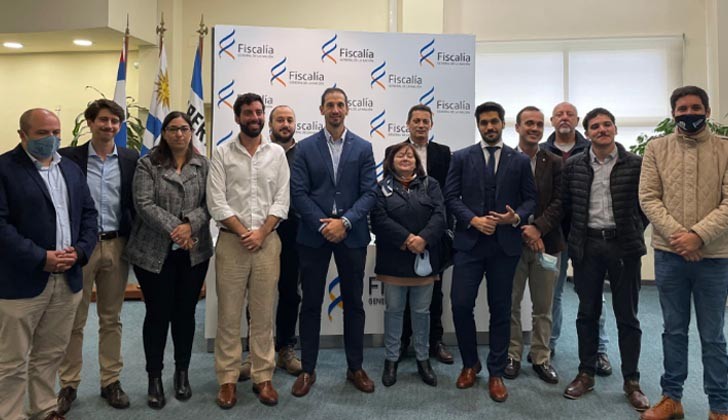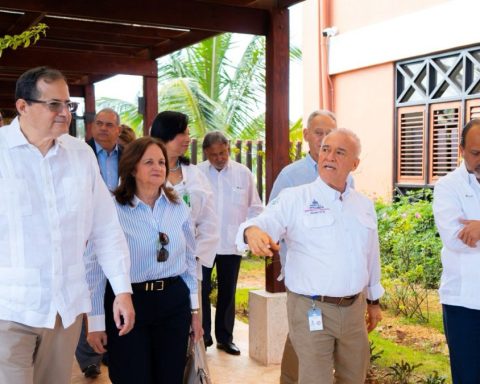Filmmakers and managers managed to include in the project denied by the Assembly incentives to make the country attractive for filmmaking.
In social networks the theme of the cinema and foreign investment from a video in which several filmmakers supported the project of Investment Law, denied and archived on March 24, 2022 by the Assembly National. What was that sector looking for with the bill?
THE HOUR talked with Mariana Andradecultural manager, filmmaker and president of the Corporation of Audiovisual Producers and Promoters of Ecuador (Cup). Andrade was part of the video that was broadcast on social networks, promoting foreign investment in the audiovisual sector through the failed legal body.
This is because Copae was invited to the dialogue tables of the Economic Development Commission and managed to include in the second report of the Investment Law some articles that promoted the foreign investment in the sector; for example:
- tax exemption to international companies that want to carry out a production in the country.
- Consider the audiovisual industry as strategic sector
- Facilities and tax exemption for the importation of products and goods intended for audiovisual productionhe
- What foreign actors who come to carry out work in productions made in the country receive their payments exempt from foreign exchange outflow tax and income tax.
The goal says Mariana Andradewas revitalize the sector which can be a great generator of employment, since around 7 thousand families.
“Proof of life” was a film that was shot in Ecuador in the year 2000, directed by Taylor Hackford and starring Meg Ryan and Russell Crowe. The Amazon, the Andes and the capital were the settings for this american film.
Mariana Andrade and Camilo Luzuriaga They participated as local producers in the shooting of the film, which gave work to 500 Ecuadorians. “None of them has won what we earned in that production”, assured the also executive director of the Ocho y Medio cinema.
He said that, in addition, the production of the film dynamized sectors such as hotels, restaurants and transportation.
Ecuador has never had a project of this magnitude again. For this reason, Copae’s proposal was to achieve incentives so that the country becomes attractive for future productions, more so now that the audiovisual industry has spread to digital platforms like Netflix, HBO, Amazon Prime.
precariousness in culture
Currently, Ecuadorian cinema has a single competitive fund which is divided into small projects. A proposal could receive between $30 thousand to $50 thousand. This despite the fact that the making of a film can cost millions of dollars.
Andrade confirms that the fund is insufficient; in addition, that makes the sector is anchored to a dependence on the public budget.
The manager maintains that it is a sector that has precarious living conditions. And he adds that not only the cinema, but music, literature, theater, it seems that survive as best they can.
“Artists could almost be part of those who receive help from the Ministry of Economic and Social Inclusion”, ironizes Mariana Andrade, when referring that art, in Ecuador, is almost maintained from the gifts.
What would the audiovisual industry need to take off?
political calmreply directly Mariana Andrade. That the country presents the conditions so that large productions bet on carrying out their projects in Ecuador.
The good among the bad
Despite the project file Investment LawMariana Andrade celebrates that the focus was on artin the cinema, in the creative industry, which, at least, is talked about. “They even offered us a law,” confirms the president of Copae, who will now present reforms to the Organic Law of Culture that the Plenary will deal with in the following weeks.
This is already a light for those who, despite everything, they continue betting on living from art. (GVL)
THREAD | Why is the Law of Attraction of Investments important, and what are its benefits? #ElCineNoSeStops #CinemaIsCulture #CineIsIndustry @LassoGuillermo@AsambleaEcuador@GuadalupeLlori@DanielNoboaOk pic.twitter.com/5v3c0CB5mp
– COPAE Ecuador (@COPAE_Ec) March 20, 2022














